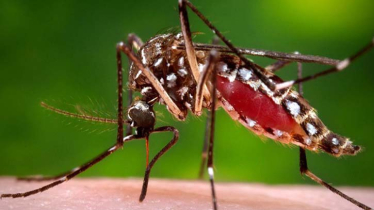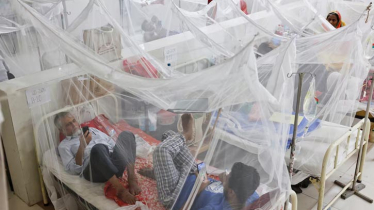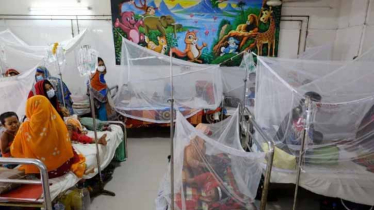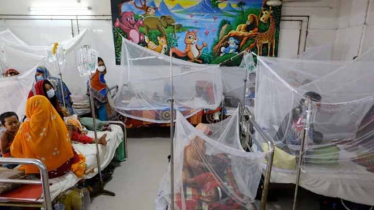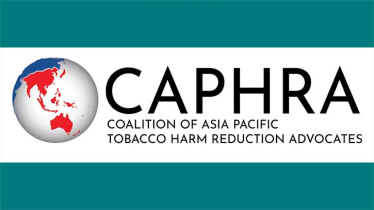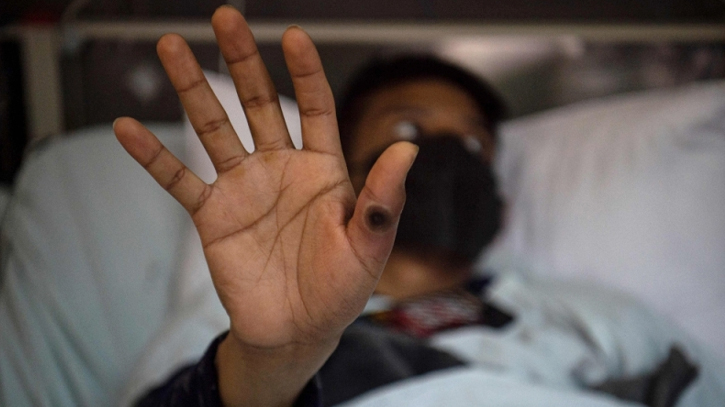
Photo: Collected
MPox (formerly known as monkeypox), an infectious disease typically found in parts of Central and Western Africa, has again been labeled a global health emergency by the World Health Organization (WHO).
Mpox became a global concern in 2022 when a type of the virus spread to other countries. That outbreak led to more than 90,000 cases worldwide, including more than 32,000 in the United States.
In 2023, the WHO declared an end to the global health emergency based on a decline in new cases and steady progress in controlling the spread of the disease, even though it continued to circulate in the community.
What are the symptoms?
Surveillance of mpox is quite incomplete, and there's much more to learn. But there are some ways to identify it.
- fever, headache, chills
- joint pains, backache, muscle aches
- Swollen lymph nodes
- Extreme tiredness
- Onset of rash, 1-5 days after fever
Can mpox spread easily with close contact?
Mpox can spread in different ways. Before the 2022 outbreak, the most common method was by direct contact with infected animals by way of a bite, scratch, or feces, or by preparing/eating meat or using products from an infected animal.
What was troubling about the 2022 cases is that mpox appeared to be spreading through close contact with an infectious rash, scab, or bodily fluids. It can also be transmitted through respiratory secretions during prolonged face-to-face contact or during intimate physical contact, including kissing, cuddling, or sex. It is not yet known if it is spread through semen or vaginal fluids.
Additional transmission can occur from touching clothing, linens, or other items that came in contact with an infectious rash or body fluids. Pregnant women can also transmit the virus to their fetus.
How can you prevent mpox transmission?
There are several different ways people can prevent mpox infection, including avoiding close, skin-to-skin contact with a mpox rash; not handling or touching bedding, clothing, or towels of a person who has mpox; and washing hands often with soap and water or using an alcohol-based hand sanitizer, especially after contact with people sick with the virus.
Individuals who are at increased risk (MSM with certain high-risk sexual exposures) are encouraged to receive two doses of the Jynneos™ vaccine (more on vaccination below). Vaccination reduces the chances of contracting the infection and of severe illness, hospitalization, and death. Vaccination is also an important tool in preventing the spread of mpox.
Can you get mpox from close contact?
Yes. According to the CDC, mpox can spread to anyone through close, personal, skin-to-skin contact, which can happen when you have sex. Examples include:
- Oral, anal, and vaginal sex or touching the genitals (penis, testicles, labia, and vagina) or anus (butt) of a person with mpox
- Hugging, massage, and kissing
- Touching fabrics and objects that were used by a person with mpox and that have not been disinfected, such as bedding, towels, fetish gear, and sex toys
How is mpox diagnosed?
Doctors can diagnose mpox based on a patient’s history and a physical exam; anyone who suspects they might have the virus should contact their health care provider. The virus can be confirmed with a PCR test that is available at specialized labs. Your health care provider can work with the state department of public health if testing is deemed necessary, A Infection disease doctor said.
What should you do if you have mpox?
Those who are sick with mpox should isolate at home. For those with an active rash or other symptoms, stay in a room or area separate from family and pets when possible.
While there are no specific treatments for mpox infections, antiviral drugs licensed for smallpox use are effective and can be used against mpox. These might be advised for people more likely to get very ill, including those with weak immune systems.
Is there a mpox vaccine?
Two vaccines licensed by the Food and Drug Administration (FDA) are available for preventing mpox. Jynneos is a two-dose vaccine (separated by four weeks), which is up to 85% effective in preventing mpox after two doses and is recommended for those who are at increased risk of exposure to mpox and those who have been exposed to mpox in the past two weeks.
The other vaccine, called ACAM2000, is a modern iteration of an old smallpox vaccine. The WHO celebrated the eradication of smallpox in humans in 1980. Now stored in a national stockpile, the vaccine has been used for mpox, but there are drawbacks: it can lead to serious illness in people with compromise immune system . It is not the preferred vaccine for mpox at this time.
Why might mpox and other infectious diseases be behaving differently?
“With regards to mpox previously, the vast majority of cases were from contact with animals, usually rodents. I believe our encroachment on the natural world has brought us into closer contact with animal species we had never been close to before,” Dr. Azar says. “And when animals’ ecosystems are destroyed, they move closer to urban environments. That has facilitated the transfer of viruses that mostly circulate in animal species. And since humans have not been exposed to them, there is very little pre-existing immunity to these viruses, which makes us more susceptible.”
Messenger/Sourov


